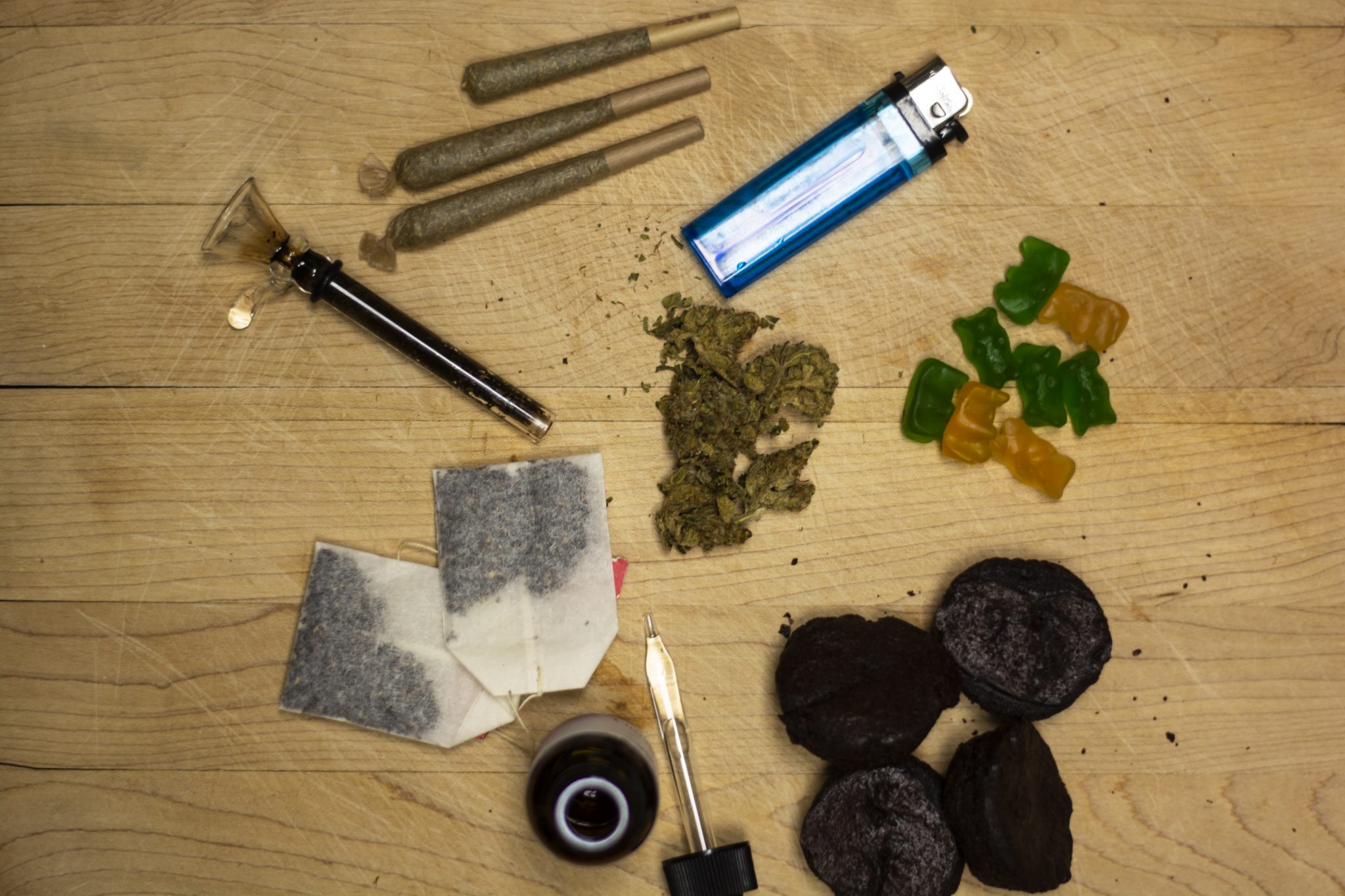
Wednesday, Oct. 17, 2018, marks the official legalization of cannabis across Canada. Just as with alcohol, each province has their own distinct laws and regulations when it comes to the purchasing and consumption of cannabis — and people must be at least 19 years of age to be able to purchase.
Although the substance itself can no longer incriminate someone, penalties for consumption and selling to minors are even more strict than that of alcohol: someone who is caught selling cannabis to minors could face up to 14 years in prison.
David Phillips, the former interim president of the Ontario Cannabis Store, as well its former vice president of strategy and partnerships, gave some insight as to how the buying process will work on the online platform.
“The way it will work in Ontario — and it’s different in every province — is that the government agency called the Ontario Cannabis Retail Corporation, they will be responsible for purchasing all cannabis that will be sold in Ontario and they’ll be responsible for operating the warehouse where all of that product is received,” Phillips said.
“They’ll also be responsible for shipping it one of two places: either to stores, which will be run by the private sector starting on the first of April next year or they will be shipping it directly to people’s homes.”
Since the process of packaging, delivering and consuming is now legal, it will be monitored heavily under a microscope from the government’s perspective.
“The Ontario Cannabis Store is responsible for the warehousing operations, employing the people who build and run the website, so those individuals will be responsible for ensuring the product when it comes in and when it goes out is packaged in accordance with the law,” Phillips said.
Though the process of purchasing cannabis may seem a lot less intense than going into an LCBO and having someone check your ID, the government will still be making sure consumers are over the legal age in Ontario to purchase and consume.
“It’s a two-step process: when you go on to the website, there’s the age gaging mechanism that is put in place that essentially requires the person coming on to put in their age and to verify that they are over the age of 19,” Phillips said.
The second step is when the product is actually delivered to the customer’s address, it will only be provided to an individual who is over the age of 19 and has provided identification to the delivery person,” Phillips said.
“If you are under the age of 19, the product will not be left at the address and instead will go back to the Canada Post depot, where someone over the age of 19 will then be able to pick it up.”
“The interim policy gives us about six to eight months to consult with the Laurier community, consult with the various levels of government, local municipalities and other universities and colleges to make sure that the long-term permanent policy that we have is the best one possible.”
There are many benefits to the legalization of cannabis, not just from a financial standpoint, but also to diffuse the current war on drugs.
“Public health experts, like those at the Centre for Addiction and Mental Health, have found that the criminalization of recreational cannabis in Canada simply wasn’t working. Canada had some of the highest user rates in the world, particularly when it came to youth,” Phillips said.
As for the working group that has been put together to collect information for a long-term policy, “They’ll go in with an open mind, and they’re going to consult with people on campus, the municipality and the provincial and federal levels of government to understand where everyone is going with it, Crowley said.
“The hope and the aspiration in legalization in Canada is going to have a beneficial impact in ensuring that if product is going to be purchased and consumed, it comes from a legal marketplace where the product is completely controlled and consumers have education.”
However, the effects of legalization are not positive for all. Ben Willsteed, an employee at Different Strokes in uptown Waterloo, revealed that no longer criminalizing cannabis seems to be merely another act for the government’s gain.
“You have to start applying for licensing for the following year in December, right now it’s looking pretty expensive for licensing — about $97,000 a year. They’re saying they’re not monopolizing it, unfortunately, so it’s sort of the way it seems to be going,” Willsteed said.
The effects that cannabis has on the body means it can still impair those operating vehicles or heavy machinery.
However, the impression that weed and alcohol have equally detrimental effects are causing more harm to the legalization process, in the eyes of some.
“It would be nice if they were looking at it not in the same class as alcohol, because it’s not at all, like with zoning your schools and stuff like that,” Willsteed said.
Different Strokes is currently located directly next to an elementary school and still is too close to Laurier to be able to sell cannabis, as a 4 km radius is needed from a government owned and run facility.
Different Strokes has been located Uptown for almost 13 years, but being locally owned and operated, the intense costs the government is placing on selling cannabis happens to be working more in favour of the government’s warehouses like the OCS.
“They’re only handing out a certain amount of licenses to people who are able to pay the insane licensing costs,” Willsteed said.
“We want to see it freed. If it’s legalized we want to see it freed, not [that] you have to pay the government hundreds of thousands of dollars or whatever it will be to sell something that is legal.”
Though the costs surrounding legalization may negatively impact those currently in the industry, the negative stigma may change.
“I think the stigma with older people will start getting erased once they realize ‘potheads’ or whatever you want to call them aren’t people who drink; it’s not cocaine or heroin or alcohol,” Willsteed said.
As for Laurier, the university has put an interim policy in place from six to eight months to work with the government, community and other universities on the best approach to the substance, as well as creating a working group to gather information for recommendations for a longer-term policy.
Currently, cannabis is prohibited in indoor common areas, like university and college residences, as well as on university property, in university facilities and in university vehicles — with the exception of medical marijuana users, who must request accommodation through the university.
Kevin Crowley, the director of communications and public affairs for Laurier, clarified some of the policy for students who may be unsure what legalization at Laurier entails.
“It’s a prohibition that you can’t use recreational cannabis on Laurier’s campuses, in our buildings or facilities, at least for the time being,” Crowley said.
“The interim policy gives us about six to eight months to consult with the Laurier community, consult with the various levels of government, local municipalities and other universities and colleges to make sure that the long-term permanent policy that we have is the best one possible.”
As for the working group that has been put together to collect information for a long-term policy, “They’ll go in with an open mind, and they’re going to consult with people on campus, the municipality and the provincial and federal levels of government to understand where everyone is going with it, Crowley said.
“We can’t presuppose what the working group’s recommendations will be, they’ll think it through and do their research.”
Oct. 17 has a lot of changes in store for every resident of Canada, including those at Wilfrid Laurier, as they work to keep the school safe — but regardless of the choices made on consumption, remember to be responsible.







Leave a Reply
You must be logged in to post a comment.